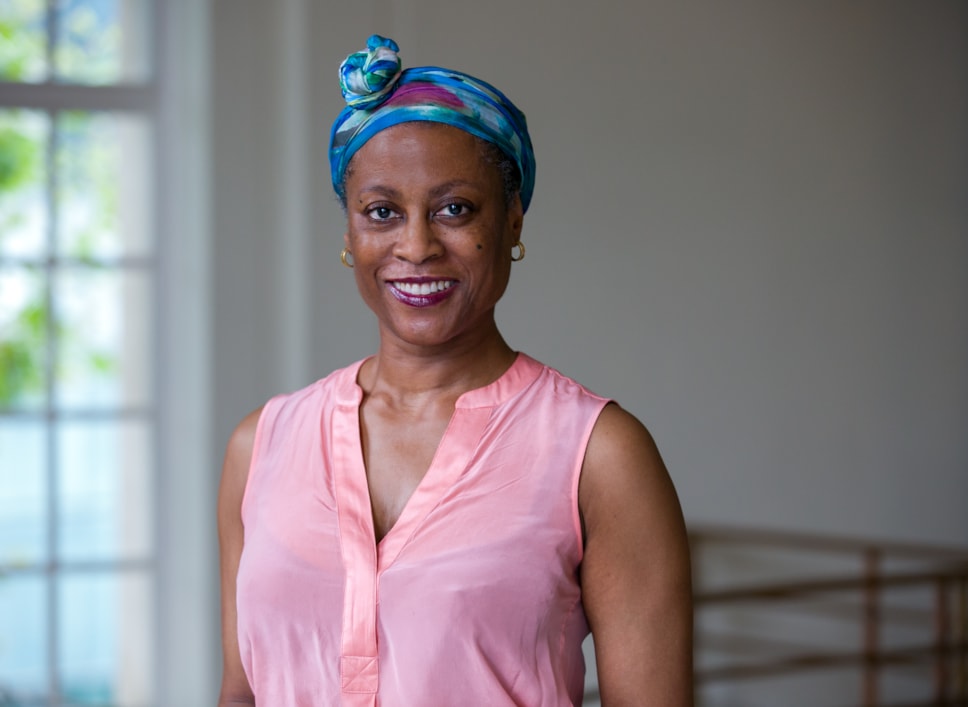
Dr Sandra Husbands: Concerned about the Covid vaccine? It's safe, here's why
Dr Sandra Husbands has been a doctor for 33 years and is currently the Director of Public Health for Hackney and the City of London. Here she answers some of the most common questions people have on the coronavirus vaccination roll out.
Keep up to date with the coronavirus vaccine roll out in Hackney on our website.
This month, locally, the NHS started vaccinating people over 70 and we now have four vaccine centres open in the borough, meaning thousands of people each week are able to get vaccinated here in Hackney.This is all very positive news. Hopefully, coronavirus will one day go the way of previously deadly viruses like Polio, Tetanus and Smallpox, which have all been beaten by vaccines and we no longer see these viruses killing or debilitating people in the UK. Even the Influenza virus, which causes flu, has been subdued and we’ve learnt to live with it, with regular vaccinations to keep the most vulnerable safe.
Though studies show the vast majority of people in London are ready and willing to get the vaccine, a number of people are naturally worried about something they don't know much about and want more information, before making up their minds on this.
I want to make sure everyone is able to make an informed decision about getting the vaccine, using reliable information from trusted sources.Local data in Hackney also shows some people are reluctant or doubtful about getting the vaccine, particularly in our Black and Black British populations.
When I looked into it, I found that generally people had valid reasons for being wary, and so, I want to take this opportunity to provide you with information that will help you to make that decision and allay fears you may have.
What makes people wary of the covid-19 vaccine?
One of the reasons why some people are hesitant to take the vaccine is because of the troubled history of racism in medical testing. There are true events, even in recent history, where racism has played into unethical medical testing.
Partly as a result of this, a much smaller proportion of Black people or others from diverse communities volunteered to participate in the recent vaccine trials.
However, I want to reassure our residents that for the covid-19 vaccines approved for use in Britain that sad history is not repeating itself. All of the vaccines approved have not only gone through rigorous clinical testing, but the researchers have also produced reports to ensure they were tested in an ethical way.I also wanted to highlight some of the amazing Black and Minority Ethnic scientists who produced these vaccines. Such as the producers of the Pfizer Vaccine, Ugur Sahin, who was originally from Turkey and brought up in Germany, and Ozlem Tureci, his professional partner and wife. There is also Dr Kizzmekia Corbett, an African American woman who is at the forefront of the team who created the Moderna vaccine.
Why is it important to get your covid-19 vaccination?
The vaccine will reduce the chance of you becoming seriously ill from covid-19, which can be deadly, particularly if you’re in a high clinical risk group. Getting your vaccine as soon as you can should protect you and may help to protect your family and those you care for. That’s why I jumped at the chance to have my vaccine recently.The covid-19 vaccine should help reduce the rates of serious illness, save lives and reduce pressure on the NHS and social care services.
Was the vaccine rushed?
There are also some worries that the vaccine has been rushed in some way. The fact is the approved COVID-19 vaccines are safe and effective. Although they were developed in record time, this is because of world-wide collaboration and investment.
The approved vaccines have gone through the same rigorous processes as usual and have been tested on hundreds of thousands of people worldwide. Getting the vaccines developed, approved and into production in record time has been achieved by committing all the money and resources that were needed and overlapping the various trial stages, as well as by recruiting so many volunteers.
The approved vaccines are safe, according to the European Medicines Agency (EMA), the US Food and Drug Administration (FDA) and the World Health Organisation (WHO) and the British Medicines and Healthcare Products Regulatory Agency (MHRA). You can read the reports from the MHRA on the government website. Watch a video on how the vaccines were developed.
Has the vaccine been tested on different types of people?
The vaccines have been in clinical trials across a number of countries - including the UK, Brazil, Turkey, Germany and South Africa, to name a few - with hundreds of thousands of people taking part. Although smaller numbers of Black and Minority Ethnic people have been involved in the vaccine trials, the results that are available show that it is safe across all the age groups and ethnic groups it’s been trialled on. Across the UK, more than 8,370,000 people from all backgrounds have already received their first vaccine dose outside of the trials.
Are there any side-effects?
Like any medicine, including those you can buy over the counter, such as paracetamol or antihistamines, vaccines can have some side-effects. Most of these are mild and short-lived and not everyone gets them.
Common side-effects of the covid-19 vaccine include:
- soreness where the needle went in
- feeling tired
- headache
- aches
- feeling sick.
These side-effects usually wear off within a couple of days or less. There’s currently no concern that any of the covid-19 vaccines cause anything more serious.
Will the vaccine work on the new Coronavirus variant?
Thankfully, the current vaccines do work on the new variant.
Is the vaccine suitable for me if I have allergies?
The vaccines don’t contain any common allergens, either, such as gluten, anything derived from eggs, peanuts, milk/lactose or latex. However, the Pfizer BioNTech vaccine does contain a substance called polyethylene glycol (PEG), which is a known allergen. Allergic reactions can occur, but are rare. A small number of incidents of severe allergic reactions (anaphylaxis) have occurred with the Pfizer vaccine, from the millions of doses that have been given in trials and vaccination programmes. People who are known to have severe allergic reactions to anything or who are allergic to PEG are advised not to get the Pfizer vaccine, but to opt for the Astrazeneca one, instead.As with all vaccines, appropriate treatment and care will be available in case of a rare, anaphylactic event following administration.
Is it vegan/vegetarian friendly?
The three approved covid-19 vaccines do not contain egg or any animal products. They also don’t contain any human products and no human fetal tissues were used in their development. When further vaccines are approved, we'll publish information about known allergens or ingredients that are important for people from certain faiths, cultures and beliefs.
If you are in one of the vaccination priority groups you will get invited for a vaccination soon by the NHS. Please make sure you book your vaccination slot as soon as you are able. You might be invited to one of the Hackney sites, run by local GPs, or one of the London mass vaccination sites in Stratford or Canary Wharf. Also be aware of scams: the vaccine is only available through the NHS and it is free. You will never be asked for to pay or for your bank details.
